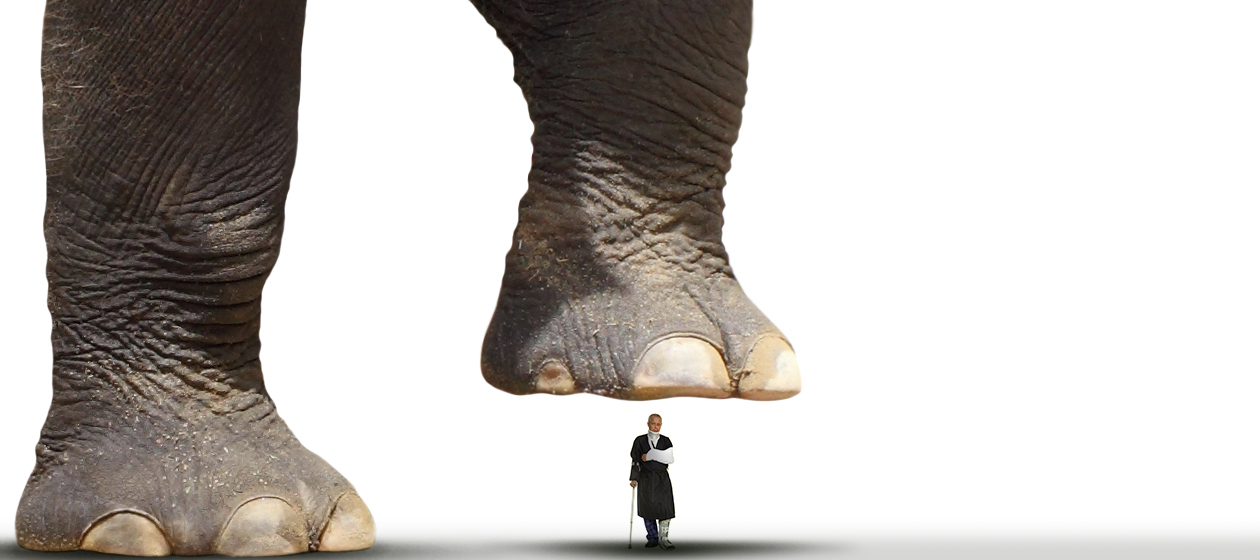Republicans' Medicaid work requirements are already proving disastrous
They're a sign of what's to come


A free daily email with the biggest news stories of the day – and the best features from TheWeek.com
You are now subscribed
Your newsletter sign-up was successful
Ohio recently released a glowing report about the results of its Medicaid expansion. The uninsured rate was cut by half. Low-income people have gotten healthier. Recipients say they have fewer financial troubles to worry about.
Ohio's experience with Medicaid expansion, which Gov. John Kasich enacted in 2013 over the objections of many of his fellow Republicans, is not an anomaly. Many states that expanded Medicaid have reported that low-income recipients are going to the doctor more and getting preventative treatments for chronic illnesses like diabetes and hypertension. All of this, plus state budgets haven't ballooned like critics said they would!
But it was too good to last.
The Week
Escape your echo chamber. Get the facts behind the news, plus analysis from multiple perspectives.

Sign up for The Week's Free Newsletters
From our morning news briefing to a weekly Good News Newsletter, get the best of The Week delivered directly to your inbox.
From our morning news briefing to a weekly Good News Newsletter, get the best of The Week delivered directly to your inbox.
Early this year, the Trump administration signaled to states that it would allow work requirements in Medicaid for the first time, primarily targeting adults without (diagnosed) disabilities — a.k.a. the Medicaid expansion population.
A number of Republican-led states, with leaders who are no doubt stalwarts of a "pull-yourself-up-by-your-bootstraps" work ethic, hurried to apply to allow work requirements, with Kentucky being the first state approved. Indiana, New Hampshire, and Arkansas shortly followed, while a handful of other state applications (including one from Ohio) are pending, likely to soon be greenlighted.
Arkansas was the first state to actually implement the work requirement, which started this past June; the state is phasing it in, beginning with adults aged 30-49. These Medicaid recipients were to create an online profile and log at least 80 hours of work per month.
The results coming in from Arkansas are a good indicator of what is to come in the rest of the country. It isn't promising.
A free daily email with the biggest news stories of the day – and the best features from TheWeek.com
Of the approximately 44,000 adults who were subject to work requirements in July, just 2 percent, or 844 people, reported 80 hours of work. About two-thirds of the larger pool were exempt from the requirements (because they were already working or met another exemption), but a full 29 percent, 12,722 people, didn't report 80 hours and are at risk of losing health coverage.
All in all, over 5,000 people failed to meet the requirement for two straight months. If they fail to meet requirements for a third month — this August — they'll be kicked off Medicaid entirely.
There are multiple reasons why these requirements aren't working, and it all comes down to a misunderstanding of poverty — or more precisely, a willful ignorance of it.
To begin with, recipients are required to record their hours online, but Arkansas ranks 48th in the country for internet access. And that's regardless of the fact that, by definition, people on Medicaid are going to find it tough to afford an internet connection. Then there's also the difficulty of even signing into the Arkansas reporting website, which, inexplicably, is only open between 7 a.m. and 9 p.m. — i.e. work hours.
But these are procedural hurdles. Of greater concern is that the requirements fail to reckon with the reality of the low-wage labor market, where Medicaid recipients typically work — namely, that schedules are unpredictable. How is someone supposed to meet reporting requirements when they work 200 hours one month, but only 60 the following month? There are also few worker protections for low-wage workers, meaning they're more likely than a middle-income person to be out of a job if something goes wrong (like if their kid gets sick and they miss work). Then that person is out of their health insurance, too.
In fact, because thousands of people losing health coverage is a likely consequence of these requirements, a judge in Kentucky struck down the Medicaid work requirement in that state, arguing that Secretary of Health and Human Services (HHS) Alex Azar, "never adequately considered whether [Kentucky's program] would in fact help the state furnish medical assistance to its citizens, a central objective of Medicaid." That legal battle is still ongoing, but bet on the Trump administration pushing the requirements through.
To many Republicans (and some Democrats), poor people who lose their health care over "idleness" are probably receiving their just deserts. Or perhaps they believe in the softer side of the same bigotry and use flowery language like Centers for Medicare and Medicaid Services Administrator Seema Verma, who believes in "help[ing] [Medicaid recipients] achieve the dignity and self-sufficiency they deserve." Yet Verma's goal flies in the face of reality. Most people on Medicaid are already working, just in jobs that don't provide health care and that pay so little that they're eligible for Medicaid (expansion covers people that earn up to 138 percent of the federal poverty line, or $12,140).
Let's also circle back to those positive results from Medicaid expansion, which show people are getting healthier. Surely, better health enables more people to work, which is supposedly Republicans' end goal? Indeed, 83.5 percent of recipients surveyed in the Ohio report said that Medicaid coverage made it easier for them to work. The only caveat is that ideally this statistic wouldn't even matter — health care shouldn't be about enabling someone to work, but to live.
Here's the reality of low-wage work in the U.S.: The hours are long and underpaid, the schedules are volatile, and maybe one has a second (or third, or fourth) job to make ends meet. It's also more likely than a middle-class job to feature poor working conditions that could be unsafe. The truth is, working a low-wage job could sooner make you sick than healthy.
But if the health of the citizenry was the actual goal here, Republicans would be placing requirements on workplaces, not the workers toiling in them.
Kalena Thomhave writes about poverty, class, and inequality. She's a fellow at The American Prospect and her work has also appeared at Quartz, Pacific Standard, and Ms. magazine.
-
 The Olympic timekeepers keeping the Games on track
The Olympic timekeepers keeping the Games on trackUnder the Radar Swiss watchmaking giant Omega has been at the finish line of every Olympic Games for nearly 100 years
-
 Will increasing tensions with Iran boil over into war?
Will increasing tensions with Iran boil over into war?Today’s Big Question President Donald Trump has recently been threatening the country
-
 Corruption: The spy sheikh and the president
Corruption: The spy sheikh and the presidentFeature Trump is at the center of another scandal
-
 The billionaires’ wealth tax: a catastrophe for California?
The billionaires’ wealth tax: a catastrophe for California?Talking Point Peter Thiel and Larry Page preparing to change state residency
-
 Bari Weiss’ ‘60 Minutes’ scandal is about more than one report
Bari Weiss’ ‘60 Minutes’ scandal is about more than one reportIN THE SPOTLIGHT By blocking an approved segment on a controversial prison holding US deportees in El Salvador, the editor-in-chief of CBS News has become the main story
-
 Has Zohran Mamdani shown the Democrats how to win again?
Has Zohran Mamdani shown the Democrats how to win again?Today’s Big Question New York City mayoral election touted as victory for left-wing populists but moderate centrist wins elsewhere present more complex path for Democratic Party
-
 Millions turn out for anti-Trump ‘No Kings’ rallies
Millions turn out for anti-Trump ‘No Kings’ ralliesSpeed Read An estimated 7 million people participated, 2 million more than at the first ‘No Kings’ protest in June
-
 Ghislaine Maxwell: angling for a Trump pardon
Ghislaine Maxwell: angling for a Trump pardonTalking Point Convicted sex trafficker's testimony could shed new light on president's links to Jeffrey Epstein
-
 The last words and final moments of 40 presidents
The last words and final moments of 40 presidentsThe Explainer Some are eloquent quotes worthy of the holders of the highest office in the nation, and others... aren't
-
 The JFK files: the truth at last?
The JFK files: the truth at last?In The Spotlight More than 64,000 previously classified documents relating the 1963 assassination of John F. Kennedy have been released by the Trump administration
-
 'Seriously, not literally': how should the world take Donald Trump?
'Seriously, not literally': how should the world take Donald Trump?Today's big question White House rhetoric and reality look likely to become increasingly blurred
